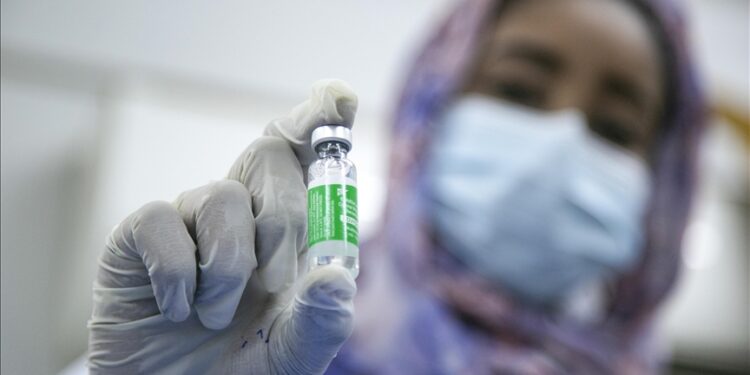JUBA, South Sudan
The South Sudan government, in partnership with United Nations agencies, has started a vaccination campaign in response to a cholera outbreak, according to a statement Tuesday.
It said 2,555 cases and 32 deaths have been reported with about 37% of the fatalities among children since Oct. 28.
About 150,000 in Renk County are set to receive life-saving vaccinations that were procured and delivered with UN support.
It added that more than 1 million doses are on the way to reach the South Sudanese, including in the national capital of Juba.
“This effort is part of a wider campaign involving the government, UN agencies, NGOs, and partners, focused on delivering healthcare, clean water provision, and hygiene promotion,” said the statement.
It added that the outbreak is affecting refugees, returnees and residents alike. Children, especially those under the age of 5 and the elderly, face extraordinary vulnerability.
Health Minister Yolanda Awel Deng said the vaccinations are vital to protect the population.
“I call upon the public, health professionals and community leaders to make the campaigns a success while taking every possible measure to prevent the spread of the disease,” she said in a statement.
UN Humanitarian Coordinator for South Sudan, Anita Kiki Gbeho, said separately that the outbreak response requires a coordinated and urgent multisectoral approach, extending far beyond the health sector.
“The UN is committed to working closely with the Government of South Sudan to ensure inclusive coordination, clear public communication, and transparent data sharing, essential for effective preparedness, readiness, and response,” said Gbeho
Vaccinations are just one part of a multi-sectoral response and the most cost-effective tool to control the outbreak.
The statement said the UN has trained and deployed rapid response teams, as well as delivered 22 metric tons of medical and cholera supplies to Renk and the state capitals in Central Equatoria, Upper Nile state, Unity State and Juba.
Risk communication and community engagement include radio broadcasts and household visits. Water supply and sanitation provision are being made safer with water purification tablets, oral rehydration solutions and soap.
The UN is supporting partners in setting up treatment facilities and rehydration points.






